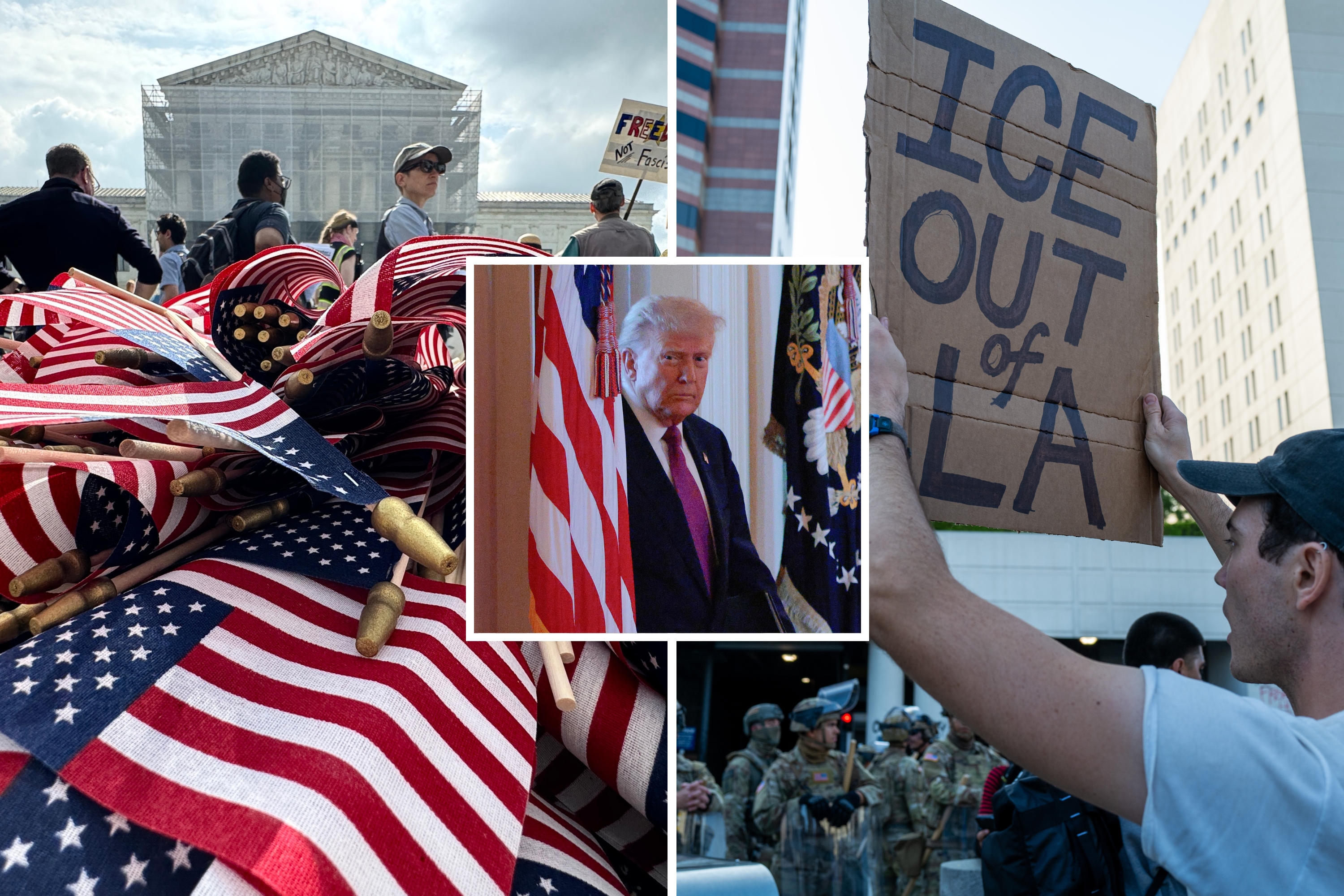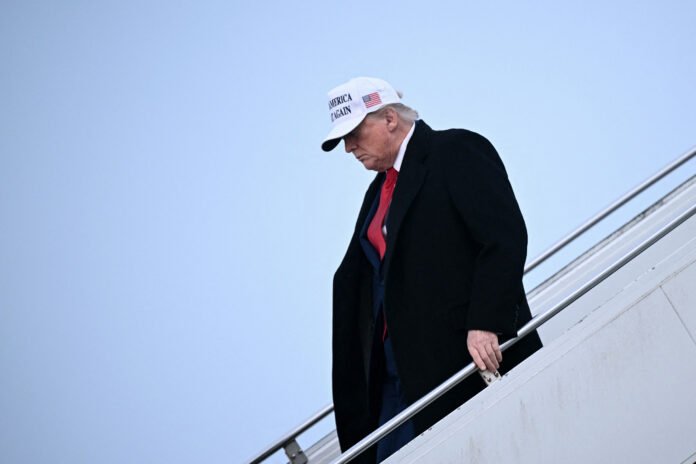The Trump administration is considering a major expansion of its travel restrictions, potentially banning entry for citizens from 36 additional countries. This follows a previous order restricting travelers from 12 nations as part of a broader immigration crackdown.
What to Know:
- The new restrictions could affect Angola, Egypt, Nigeria, Syria, etc.
- The State Department cable, signed by Secretary Marco Rubio, cites concerns over identity documents, passport security, and cooperation with U.S. deportation efforts.
- The administration has 60 days to decide whether to enforce these new bans.
- Trump’s immigration crackdown this term has included mass deportations and foreign student enrollment limits.
- The expansion would be one of U.S. history’s most extensive travel bans.
Follow Newsweek for the latest on Trump’s administration.
Trump meets Canadian PM Carney as G7 summit begins in Alberta
Trump is set to begin his first full day in Canada with a meeting with Prime Minister Mark Carney, amid ongoing tensions over trade. The two leaders previously met at the White House in May and have been in frequent contact recently, working to ease economic disputes.
Following the meeting, Trump will join other world leaders for the G7 summit, held near Calgary, Alberta. The annual gathering brings together leaders from the U.S., Britain, Canada, France, Germany, Italy, and Japan, with additional attendees from Ukraine, Mexico, South Africa, India, and Australia.
Trade negotiations are expected to be a central focus, as Trump has hinted at new trade deals emerging from the summit. However, tensions remain high, with several nations imposing retaliatory tariffs in response to U.S. policies.
Minnesota lawmakers shaken after deadly attack on state legislators
The political world is reeling after the targeted shooting of two Minnesota state legislators, which left Rep. Melissa Hortman and her husband dead and Sen. John Hoffman and his wife gravely wounded. The attack, carried out in their homes, has sparked urgent discussions about security for elected officials.
Sen. Tina Smith expressed concern over the growing threats lawmakers face, saying, “I don’t want to think that I have to have a personal security detail everywhere I go, but I think we really have to look at the situation that we’re in.”
Sen. Amy Klobuchar urged people to reflect on the human cost of political violence, calling Hortman “a person that did everything for the right reasons.”
The suspect, Vance Boelter, 57, was apprehended late Sunday. Authorities are investigating his motives amid a broader surge in politically motivated violence.
In response, U.S. Capitol Police increased security for Minnesota’s congressional delegation, and lawmakers from both parties issued a joint statement condemning the attack, saying,
Leavenworth becomes battleground over Trump’s immigration detention plan
Leavenworth, Kansas, long associated with its historic federal penitentiary, is now at the center of a legal battle over immigration detention. The Trump administration has signed a contract with private prison firm CoreCivic to reopen a 1,033-bed facility in the city, part of a broader push to expand detention capacity for migrants facing deportation.
The move has sparked resistance from local officials, who argue that CoreCivic must obtain a special use permit before reopening the facility. The city of Leavenworth has filed a lawsuit, citing past concerns about conditions at the prison, which a federal judge once described as “a hellhole.”
ICE has justified the expansion by declaring a national emergency at the U.S.-Mexico border, allowing it to bypass competitive bidding for detention contracts. The administration aims to more than double the number of available beds, potentially reaching 150,000.
The legal fight in Leavenworth highlights broader tensions over Trump’s aggressive immigration policies and the role of private prison companies in enforcement efforts. As the case unfolds, it could set a precedent for how cities regulate federal detention centers within their jurisdictions.
The Supreme Court decision that gives Trump cover for national ICE raids

Left: American flags are seen during a protest outside the US Supreme Court over President Donald Trump’s move to end birthright citizenship as the court hears arguments over the order in Washington, DC, on May…
Spencer Platt/DREW ANGERER/AFP/Chip Somodevilla/Getty Images
Something more than tear gas residue and smoke from burning Waymos hung over the Los Angeles streets hit by anti-ICE protests over the past week: a landmark Supreme Court decision from just over a decade ago.
The Trump administration has argued that sanctuary jurisdictions like California, and L.A. specifically, are getting in the way of immigration enforcement, and that states and cities should be helping federal agents carrying out their work.
That argument is, perhaps ironically, based on a Supreme Court precedent affirmed during the Obama administration. In 2012, the high court ruled in Arizona v. United States that it was the federal government’s supreme responsibility to enforce immigration laws, and it superceded state and local law enforcement.
“It has been interpreted, I have to say, remarkably consistently, by circuits from the Fifth Circuit to the Ninth Circuit, with some variations, to strike down or affirm district court decisions striking down state laws that have been viewed as attempts by the states to enforce immigration law,” Emma Winger, deputy legal director at the American Immigration Council, told Newsweek. “Arizona‘s holdings are, in many ways, very clear.”






